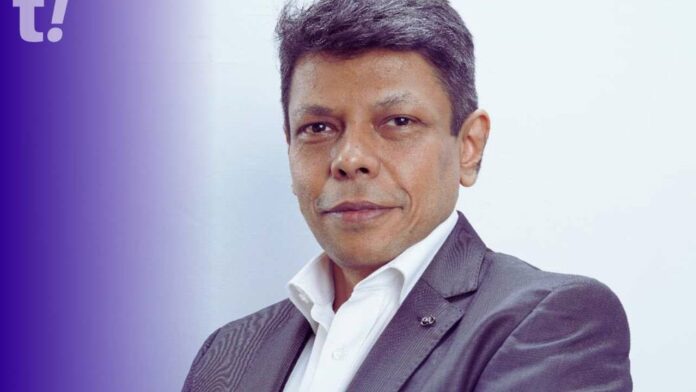Today we spoke with Dheeraj Gupta, the founder of Jumboking, to understand the company’s efforts to provide healthier and sustainable fast-food options for customers while focusing on providing burgers and healthy on-the-go snacks.
Read the complete interview:
TechGraph: Can you tell us about Jumboking’s history and how the company has evolved over the years?
Dheeraj Gupta: We have changed our narrative completely since our rebirth in 2017. That’s when our shift from vada pav to ‘Burgers-ON-THE-GO’ happened, so I’d like to say that we are a five-year-old company.
Even though aspects like hygiene and commitment to quality have been a part of our narrative since the beginning. However, the brand’s acceptance, recall value, and growth trajectory have been drastically different since then. Another turning point was about 10 years ago when we finally chose franchising as a business strategy.
Earlier, we operated a mix of franchise and company-owned stores. This was not easy, because around 2010, the company had established a presence in 13 cities with 52 stores, half of which were owned by the company itself. However, we soon realized that we had to build to scale one type of management approach.
When we became a 100% franchised company in 2013, we forged robust partnerships within the supply chain. We implemented and rolled out effective brand campaigns, integrated technology into our operations, and ensured accountability at every stage of the logistical process. The best outcome perhaps was that our emphasis on training became one of our greatest strengths.
Today, JumboKing has 150 stores, serving customers in Mumbai, Delhi, Lucknow, and Hyderabad. We are India’s third-largest burger company, after McDonald’s and Burger King, with a remarkable record of selling over 165 million burgers to date.
TechGraph: Jumboking’s menu includes many options. How does the company balance catering to different dietary needs and preferences?
Dheeraj Gupta: We have a variety of burgers, including Zesty Paneer JK, Classic Cheese Burst JK, Big Crunch JK, Spicy Mexican JK, and more. Our primary target audience consists of busy young professionals and college students who are often short on time but still crave a delicious and satisfying snack that can be enjoyed on the go.
One of our key strengths lies in meticulous supply chain management. We carefully monitor and control our inventory, maintaining a menu with only eight Stock Keeping Units (SKUs). Whenever we introduce a new flavor, we remove the least popular variant from the menu. This strategic approach ensures that our supply chain remains cost-effective while maintaining menu freshness.
In addition, we place significant emphasis on conducting thorough background research. We dedicate ample time to collecting data from various sources, both online and offline. This includes gathering insights not only from our customers but also from individuals dining at other burger establishments and restaurants. Such research provides us with valuable insights into areas that require further improvement and helps us identify opportunities for enhancing our offerings.
TechGraph: In recent years, there has been a growing trend towards healthier and more sustainable fast-food options. How is Jumboking adapting to this trend?
Dheeraj Gupta: Different players cater to different customer needs- some focus on dine-in, some on-to-go depending on customers’ convenience. As our focus has been ON-THE-GO. We cater to college students, and working professionals and also make sure that we provide them with healthy food choices.
The average calorie value of each burger is 150-200 calories which makes it a perfect snack. Our main priority is ensuring hygiene, good quality, and a snack that is the perfect mix of delicious flavors and convenience.
TechGraph: Jumboking has a strong presence in Maharashtra. What are the company’s plans for expanding into other regions in India and beyond?
Dheeraj Gupta: This is a myth. Other than Mumbai, our biggest market is Delhi and our upcoming markets are Hyderabad and Bangalore.
TechGraph: Jumboking emphasizes affordability and accessibility in its branding. How does the company balance these values with quality and consistency?
Dheeraj Gupta: The challenge is to offer ‘quality and consistency’ along with ‘affordability and accessibility’. At JumboKing, our emphasis lies on adherence to systems and processes, following strict protocols, and having capable manufacturing and supply chain partners which makes it a brand that is trusted by its customers.
While competition in the business world will always be intense, business owners must avoid becoming their competition by losing sight of what their customers value.
TechGraph: With the rise of online food delivery services, how has JumboKing’s business model changed, and what opportunities and challenges has this presented?
Dheeraj Gupta: Serving customers through delivery aggregators like Swiggy and Zomato enables the brand to increase sales via online channels. It’s important to see technology as a friend. Every touchpoint with the customers is an opportunity for the brand to offer a clear proposition of the business.
Despite the hardships presented by the pandemic, Jumboking claims to have emerged even stronger than before. The company proudly states that it has achieved an impressive growth rate of 218% during the period of April-March 2023 compared to the same period in the previous year.
TechGraph: Can you speak to Jumboking’s commitment to social responsibility and community outreach?
Dheeraj Gupta: We don’t see social responsibility as something separate from our core business. I believe social bottom lines must completely align with business bottom lines. We offer an honest product at an affordable price. Jumboking’s philosophy is, to be honest with its internal customers/ stakeholders and build a resilient entrepreneurial machine.
Our Jumboking University, in particular, runs a top-of-the-line training program that helps it train more and more people to work in our system and progress in their careers. It is also a ready funnel for our entrepreneur franchisees to run multiple stores and manage large store teams with ease.
TechGraph: What are some of the unique challenges and opportunities of running a fast-food restaurant franchise in India, compared to other countries?
Dheeraj Gupta: In the beginning, every situation can be seen as a challenge or opportunity. I recall the time when I embarked on the journey of developing a burger dispenser that would keep the burgers warm. It was certainly not easy. While visiting various burger chains around the world, I noticed that they all had such dispensers as a standard feature, but their machines were exorbitantly priced.
However, I believed that I could replicate the same functionality at a more affordable cost in India. With this determination, I contacted multiple potential vendors, expressing my requirement for a hundred such machines. Through this outreach, I eventually connected with a vendor who shared my vision and was willing to collaborate with me in creating the desired machines.
TechGraph: Finally, can you share any exciting new developments or plans that Jumboking has in the works for the future?
Dheeraj Gupta: We just released our first book ’10X Your Business’ in 2022, with a view to community building. Jumboking’s stated goal is to achieve a turnover of 1000 crores within the next seven years



